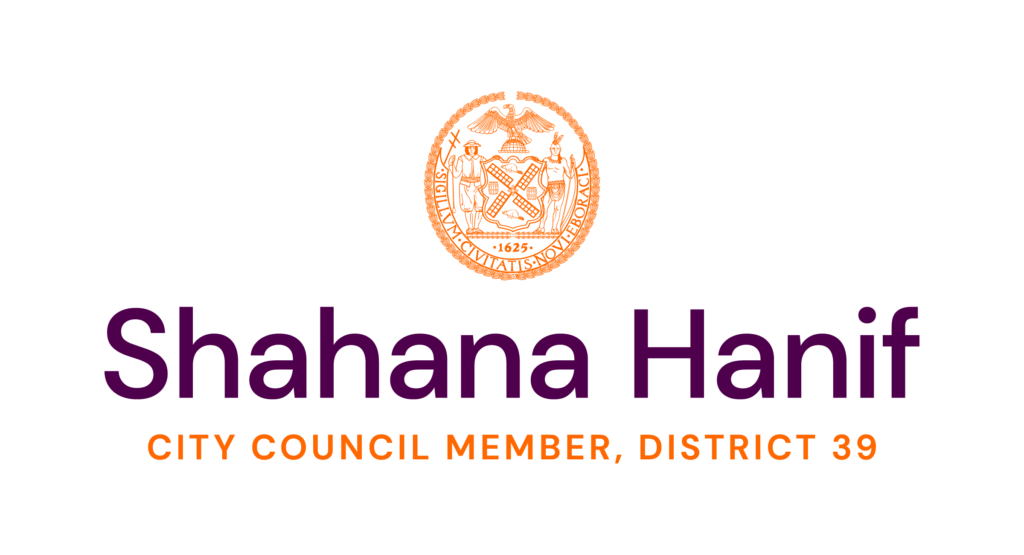
Testimony of Council Member Shahana Hanif to the Department of Sanitation on Final Rule Regarding the Residential Collection of Designated Recyclable Materials to Require the Source Separation of Organic Waste
Good morning! I’m Council Member Shahana Hanif and I represent the 39th Council District in Brooklyn. I would like to begin by thanking the Department of Sanitation for holding this hearing regarding Local Law 85 of 2023, the Mandatory Residential Organic Composting Law. As the lead sponsor of this law, I am grateful to DSNY for working alongside me, my staff, my fellow Council colleagues, and the countless environmental advocates who worked so hard to get this law across the finish line.
For too long, most New Yorkers have disposed of their organic waste together with their trash, which results in compostable waste being incinerated or left to rot in landfills that are predominantly located in communities of color. Incinerators and landfills emit destructive greenhouse gasses and harm the health of residents. Mandating organic composting is an important step in meeting our City’s environmental justice goals.
I am proud that with the full implementation of this law, all New Yorkers will now reap the benefits of organic composting. I commend DSNY for the steps it is taking to roll out this program including by sending mailers, conducting door-to-door outreach, and delivering free brown bins to those who request them.
While I appreciate the Department’s efforts to spread awareness of this new law, I would like to raise a few concerns and offer recommendations that would strengthen the program’s rollout. First, the October 13th, 2023 deadline to request a brown composting bin will significantly limit the ability of residents to obtain a bin at no cost. This could result in low and middle income New Yorkers needing to purchase their own bins in order to comply with the program. As such, this deadline should be removed completely. Residents should be able to request a brown bin at any time up to and after April 2025, when civil penalties kick in. We must ensure that our hard-won program is equitable and does not impose undue financial burden.
Additionally, changes should be made to the outreach materials, including the mailer that has been sent out, to clarify that it is mandatory for residents to separate and compost their food waste. Currently, the mailer only specifies that leaves and yard waste must be separated. While penalties do not kick in until April 2025, we must use the next year and a half to build up muscle memory and ensure that residents are properly participating in the program.
Further, I am concerned that DSNY does not yet have translated outreach materials. Outreach will be ineffective if it is not in the languages that New Yorkers understand. Door-to-door efforts and mailed materials should be directly informed by the language and cultural needs of each of our City’s unique neighborhoods. The Department’s implementation plan states that outreach will occur in 14 languages, and I expect that the Department will follow through with this commitment and collaborate with the local Council Member and community partners.
Lastly, the Department should create an Outreach Toolkit that volunteers can use to help get the word out to neighborhoods. We are privileged to have many informed and enthusiastic community members who are eager to support the Department’s efforts. These folks know their own neighborhoods best and are a critical resource in our efforts for successful participation.
I look forward to continuing to work with the Department to ensure that the implementation of mandatory residential composting is efficient and inclusive. Thank you for your time and consideration. I would also like to thank my Legislative and Budget Interns Savanah Jackson and Ryan Alwi for their work in preparing this testimony.

